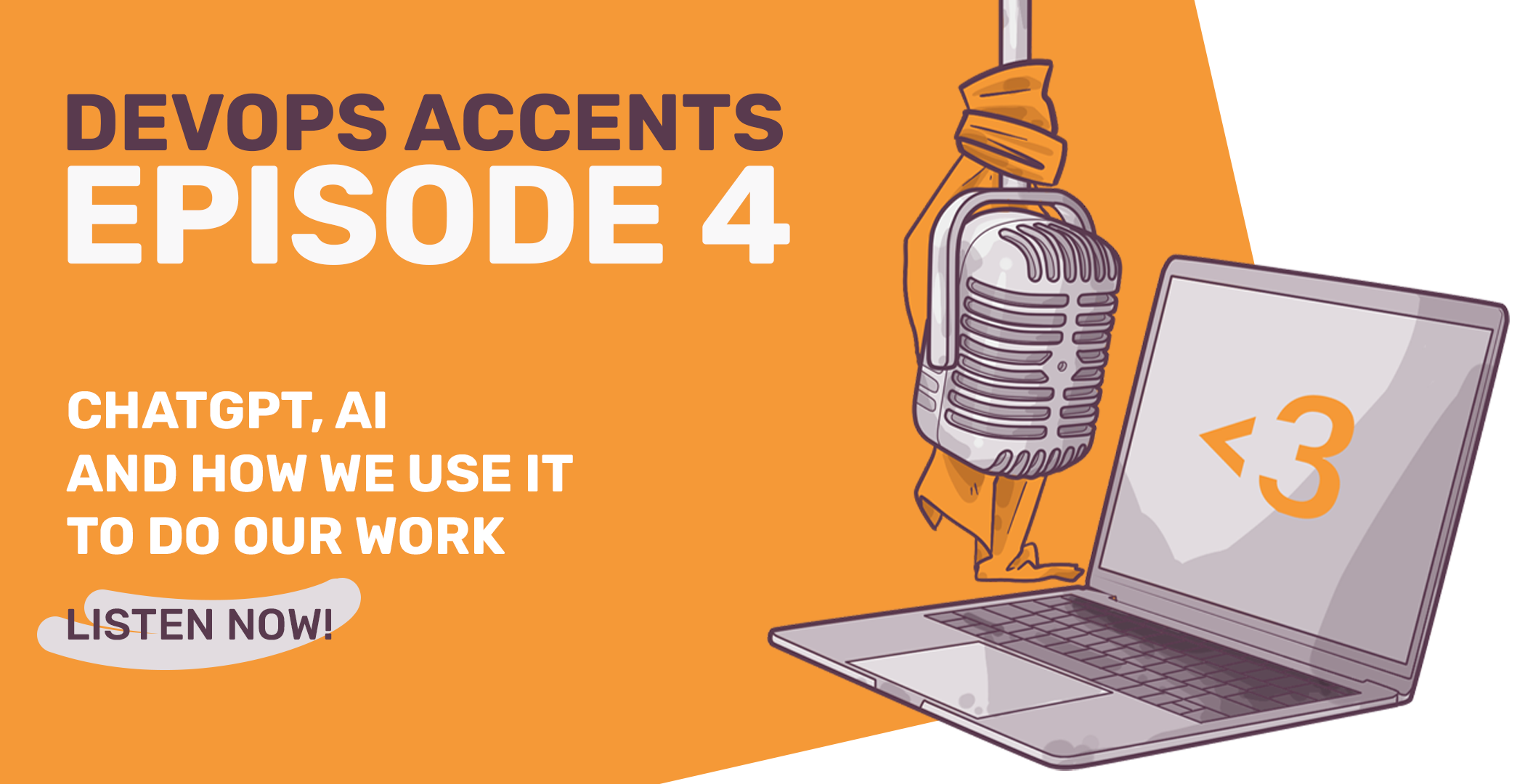ChatGPT, AI and How We Use It to Do Our Work |🎙️#4


In this episode of the DevOps Accents, Leo, Pablo and Kirill are talking about ChatGPT and AI.
- What does this tool mean for creators, for professionals, for Google and for all of us in general?
- Should Google be afraid of Microsoft and ChatGPT?
- How did Pablo and Kirill use ChatGPT for their day to day DevOps work?
- Will our brains be able to detect AI-generated content?
You can listen to episode 4 of DevOps Accents on Spotify, or right now:
The advent of artificial intelligence (AI) technologies like ChatGPT has sparked both enthusiasm and concern across various industries, particularly in DevOps and the broader IT sector. The conversation among experts has increasingly focused on how these technologies are not just reshaping the technical landscape but also influencing job dynamics and the future of work.
The Technological Marvel of ChatGPT
ChatGPT, a product of OpenAI, has been a topic of fascination due to its ability to handle complex tasks traditionally reserved for highly skilled DevOps engineers. This AI's proficiency in generating detailed, understandable explanations for intricate processes represents a significant leap forward in technology. For instance, when tasked with explaining the setup of cloud services with both public and private IPs, ChatGPT demonstrates an impressive ability to break down the steps in an accessible manner, showcasing its potential as a valuable educational tool.
The Double-Edged Sword: Efficiency vs. Employment
While the efficiency and capabilities of AI like ChatGPT are celebrated, there's an underlying anxiety about its impact on employment. The automation of tasks that once required human intelligence raises questions about the future role of professionals in the field. The concern is not just theoretical; the ability of AI to generate comprehensive and coherent content, including technical articles and code, suggests a future where the demand for certain human skills could diminish.
The Debate: Transformation or Disruption?
The discourse around AI technologies like ChatGPT is polarized. Some view these advancements as transformative tools that will augment human capabilities and free up individuals to focus on more creative and strategic endeavors. Others worry about the disruptive potential, particularly in terms of job displacement. The ability of AI to perform tasks ranging from content creation to complex problem-solving at a fraction of the cost and time has led to predictions about significant shifts in the job market.
The Future of Work and AI
As AI continues to evolve, its impact on the workforce and the nature of work itself becomes a critical area of study. The conversation extends beyond the technical capabilities of AI to encompass broader societal implications, including the need for new educational models, the redefinition of work, and the potential for universal basic income as a response to automation-induced unemployment.
Embracing Change While Navigating Uncertainty
The journey into a future intertwined with AI like ChatGPT is fraught with uncertainty. However, it also offers opportunities for innovation, efficiency, and the exploration of new frontiers in technology and work. The key lies in navigating these changes thoughtfully, ensuring that advancements in AI are harnessed to augment human potential and address the challenges posed by automation to the workforce.
In conclusion, as we stand on the brink of a new era shaped by AI technologies such as ChatGPT, the dialogue between enthusiasts and skeptics underscores the complexity of the transition ahead. Embracing the marvels of AI while addressing the valid concerns about its impact on jobs and society will be crucial in shaping a future where technology and humanity coexist in harmony.
Podcast editing: Mila Jones, milajonesproduction@gmail.com
